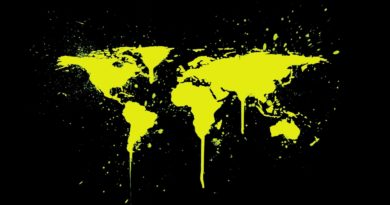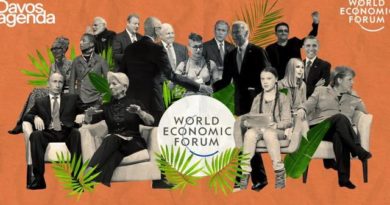Truth tracker: Does the WEF influence governments?
The World Economic Forum’s 51st-annual meeting wrapped up Thursday in the luxurious alpine town of Davos, Switzerland. Private jets have shuttled the billionaires, global leaders and business magnates away, yet conspiracy theories about the elite and influential lobbying organization remain.
THE CLAIM
Conspiracy theorists say the World Economic Forum (WEF) is pulling the levers of world power. Some even accuse it of using or even orchestrating the COVID-19 pandemic to restructure societies in favour of multinational corporations and leftist global elites through a project called “The Great Reset.” It’s claimed the World Economic Forum’s influence extends right to Ottawa and Prime Minister Justin Trudeau’s government.
Roland Paris, a professor and director of the University of Ottawa’s Graduate School of Public and International Affairs, says, “none of these concerns are legitimate.”
“The WEF brings people together for discussions,” Paris told CTVNews.ca. “It may have pretensions as an organization that produces policy ideas, but it has little-to-no influence on government policy.”
In Canada, former member of Parliament Maxime Bernier and Conservative leadership hopeful Pierre Poilievre have repeatedly taken aim at the World Economic Forum and “The Great Reset,” accusing it of serving a globalist agenda at the expense of regular Canadians.
“I have made it clear that my ministers in my government will be banned from participating in the World Economic Forum,” Poilievre, an Ontario MP, said to applause in a May 23 federal Conservative leadership campaign video. “Work for Canada! If you want to go to Davos, to that conference, make it a one-way ticket. But you can’t be part of our government and working for a policy agenda that is against the interests of our people.”
ANALYSIS
While the World Economic Forum has long been subject to legitimate criticisms about global inequalities and elitist influence, such critiques were conflated into full-blown conspiracy theories in June 2020, when the World Economic Forum held an annual meeting under the name “The Great Reset.” Although short on specifics, an article published that month by German economist, engineer and World Economic Forum founder Klaus Schwab argued that the COVID-19 pandemic recovery could be used to make economies more sustainable and equitable through “a ‘Great Reset’ of capitalism.”
“I think the reason why it attracted so much attention was partially because of the title, ‘The Great Reset,’ and because it outlined a program,” Robert O’Brien, a professor of political science at McMaster University in Hamilton, Ont., told CTVNews.ca. “I think it was a red flag to conspiracy theorists and to far-right nationalists.”
Prime Minister Justin Trudeau then seemingly added fuel to the conspiracy fire in a Sept. 2020 United Nations conference by saying the “pandemic has provided an opportunity for a reset” and to “reimagine economic systems.”
Videos also emerged online of Schwab praising Trudeau. At Davos in 2016, Schwab said of Trudeau, “I couldn’t imagine anybody who could represent more the world which will come out of this fourth industrial revolution.”
During a 2017 Harvard University talk, Schwab also declared that Trudeau and more than “half of his cabinet” were Young Global Leaders of the World Economic Forum: a program that promotes promising leaders aged 30 to 40. Other Canadian alumni include Chrystia Freeland, Jagmeet Singh, Andrew Scheer.
“We penetrate the cabinets,” Schwab boasted at Harvard.
Angela Merkel, Tony Blair, Emmanuel Macron, Elon Musk, Mark Zuckerberg and Ivanka Trump have also participated in the program.
Conservative MP and former cabinet minister Michelle Rempel Garner was named a Young Global Leader in 2016, and later attended a World Economic Forum meeting in Davos in Jan. 2018.
In Feb. 2022, Rempel Garner responded to ongoing harassment from Canadian conspiracy theorists with an op-ed entitled: “I went to Davos. The World Economic Forum is not running Canada.”
“The WEF is certainly elitist, but, to my eyes, it fell far short of being a cabal bent on global domination,” Rempel Garner wrote. “And as much as I do not support Justin Trudeau, I would wager a safe guess that Canadian electoral politics and personal ambition have much more impact on his policy decisions than Klaus Schwab.”
David Black, an associate professor of communication and culture at Royal Roads University in Victoria, B.C., describes the World Economic Forum meetings in Davos as “an elite talking shop.”
“Is the WEF a body with intellectual influence and an opportunity for elites to network? Yes,” Black told CTVNews.ca. “Is it in the business of controlling sovereign governments around the world? No.”
John Baird, another Conservative MP and former cabinet minister, was also a World Economic Forum Young Global Leader who later attended meetings in Davos. Baird currently serves as Poilievre’s campaign co-chair.
“He knows better, but he is clearly pandering to a segment of the population that distrusts institutions and falls for conspiracy theories,” Paris, of the University of Ottawa, said of Poilievre.
“It really does show his populist leanings,” O’Brien from McMaster University said. “It’s concerning to me that he’s basing part of his program for being the next leader of the Conservative Party, and perhaps, who knows, one day prime minister of the country, by appealing to these fringe views.”
CONCLUSION
An argument can be made that the World Economic Forum is elitist and detached, but there’s no credible evidence it controls world governments.
“The current wave of conservative populism argues that such institutions seek to manipulate public opinion, as well as control the wealth and political power of the average person to elites’ advantage,” Black from Royal Roads University explained. “In effect, such institutions are imagined as a kind of secret unelected government, and the real and unaccountable centres of power in the world.”
“It’s a forum for discussion; you know, no decisions are taken there,” O’Brien said of the World Economic Forum. “The only people who should be afraid of it are people who are afraid of the exchange of ideas.”


